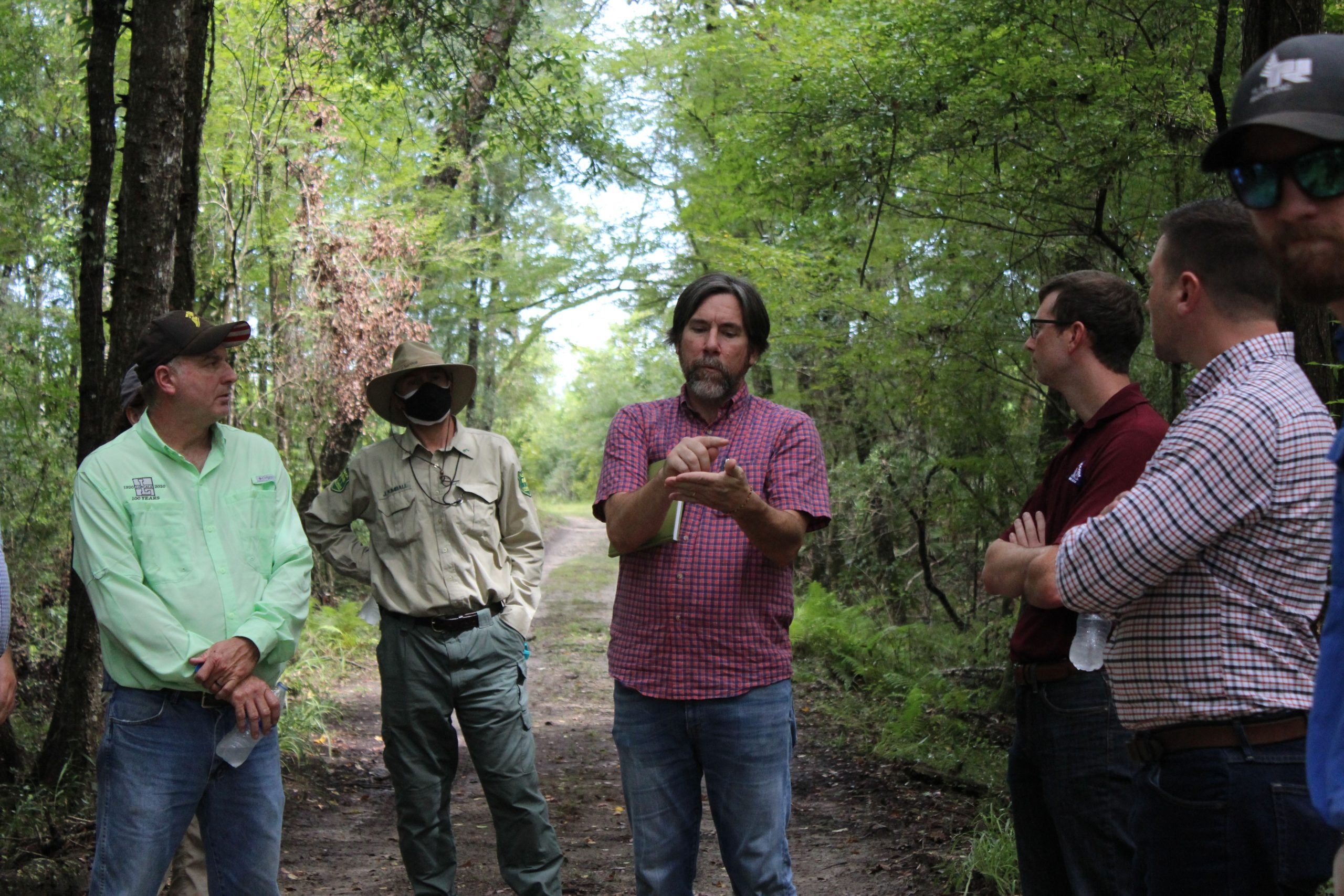FLA Holds Timber Talk on At-Risk Species and Forestry Best Management Practices
Communication and collaboration between private forest landowners and land management agencies are key to produce policies and regulations that work for all parties and minimize unintended consequences. The Forest Landowners Association (FLA) strives to bridge the knowledge gap between landowners and administrative agencies through our Timber Talk program, which brings agency staff, landowners, and other forest stakeholders into the field to learn from each other and showcase great stewardship on private forestland first-hand.
FLA held a Timber Talk in northeast Florida in early September 2021, to facilitate discussions between private landowners, federal and state agency staff, and other forest management and education professionals about the use of forestry best management practices (BMPs) on private lands. Specifically, BMPs to protect water quality that aquatic species depend on to thrive. Although this Timber Talk was held in conjunction with the recent proposed listing of the Suwannee Alligator Snapping Turtle and the recognition of forestry BMPs in its accompanying 4(d) rule, there are wide-reaching impacts to the entire private forest landowner community.
4(d) rules tailor the “take” prohibitions for a threatened species – in other words, what activities can and can’t be done to best protect the species. The proposed 4(d) rule for the Suwannee Alligator Snapping Turtle was groundbreaking in that it included exceptions for forest management activities such as construction, maintenance, pesticide and herbicide use, and other silviculture practices as prescribed in state forestry BMPs. Over 95% of Florida and Georgia landowners in the turtle’s range already comply with BMPs, so these landowners can conduct business as usual even if they have the turtles on their property.
Science has long stated that the implementation of forestry BMPs to protect water quality is a beneficial practice for aquatic species. By acknowledging these BMPs in this 4(d) rule, USFWS is protecting those species while making sure private landowners can keep their working forests working. This 4(d) rule may also set a precedent for future aquatic species listings and, because almost all forested property has some sort of water running through it, is relevant to all forest landowners no matter your location.
This event served as a great opportunity to showcase the effectiveness of forestry BMPs with the U.S. Fish and Wildlife Service (USFWS), share the stewardship and commitment that private landowners have to their forests, and build relationships that will pave the way for future collaboration. There was a wealth of knowledge represented at the event, and all the attendees gave input from their diverse areas of expertise for a 360-degree discussion of at-risk species and forestry BMPs.
Lisa Yarbrough, USFWS Biologist and Suwannee Alligator Snapping Turtle core team member, gave attendees background information on the turtle and how the USFWS arrived at their proposed listing. She also talked about future listings and the importance of BMPs for at-risk aquatic species. Jordan Kimball, Watershed Forester for the Florida Forest Service, highlighted the unique nature of the cross-boundary Suwannee River Watershed, which covers over 9,900 square miles in Florida and Georgia and is habitat for a multitude of plant and wildlife species. Robin Holland, BMP Forester for the Florida Forest Service, told the group more about why landowners use forestry BMPs and the many benefits of implementing these practices.
FLA was happy to share the day with our fellow forestry colleagues and help open new lines of communication for future collaboration between land management agencies and the stewards of our private forests.
The group was hosted by Wesley Carter and Loncala, Inc.
Timber Talk Attendees included representatives from Forest Landowners Association, Loncala, Inc., U.S. Fish and Wildlife Service, Florida Forest Service, Florida Fish and Wildlife Conservation Commission, Florida Forestry Association, Florida Farm Bureau Federation, WestRock, University of Florida School of Forestry, Fisheries, and Geomatics, the office of Congresswoman Kat Cammack, Usher Land and Timber, and Bielling Site Prep.
